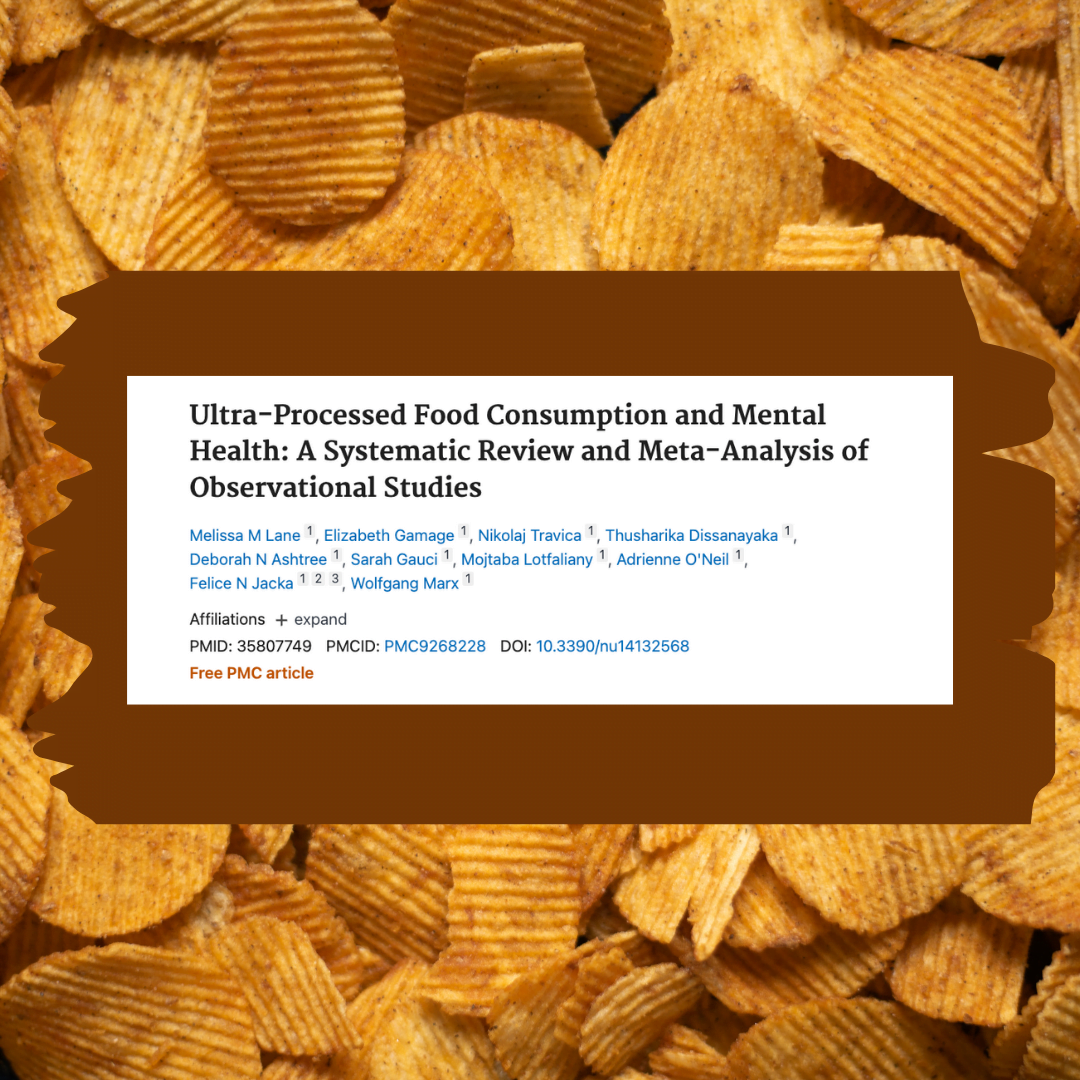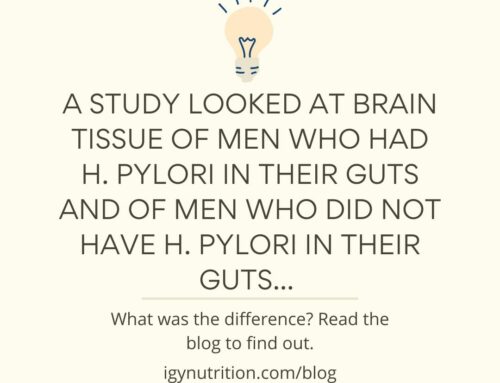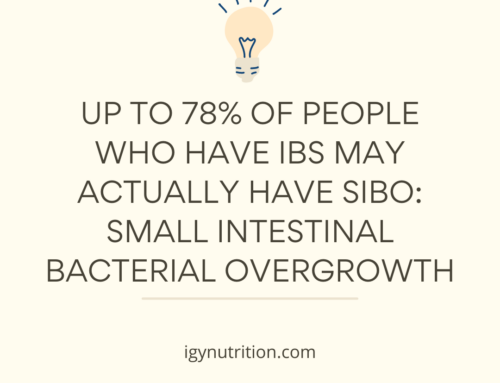The gut-brain axis is all the rage these days. But is it true that gut health and diet can affect mental health?
A recent meta-analysis study included 385,000 participants to investigate this question. Let’s take a look at what they found!
Mental Health and the Gut: A Quick Recap
Scientists have recently discovered that there is a link between gut microbiota and the brain. They call this connection the gut-brain axis.
Ever felt butterflies in your stomach? That’s the gut-brain axis at work!
Gut microbes influence levels of neurotransmitters such as dopamine, serotonin, and epinephrine.
Imbalanced neurotransmitter levels due to dysbiosis have been implicated in diseases like Parkinson’s, depression, anxiety, autism, and even dementia.
The gut-brain axis can also operate in the opposite direction; the brain can influence the gut.
Stress-induced intestinal inflammation (yes, that’s a real thing!), for example, may negatively impact microbial balance. How so?
When stressed, the body releases catabolic hormones and inflammatory cytokines that impact the environment where microbes live (your gut). These stress-induced environmental changes may increase or decrease the amount of helpful and harmful microbes occupying the intestines – a bad thing for gut health.
While more research is needed to clarify the complex bidirectional interactions associated with the gut-brain axis, there is promising evidence to suggest that gut health should be part of any mind-body health program.
In short: a healthy gut lays the foundation for a healthy mind. If you struggle with mental health, consider improving the composition of your microbiome. Check out our blogs on dysbiosis to learn how to go about that!
Now, let’s see what our 385,000-participant study found out about processed foods and mental health.
Processed Foods and Mental Health
As you might have guessed, our new study found a not-so-great link between the consumption of ultra-processed foods and mental health. It looked at ultra-processed food’s effects on depression, anxiety, trauma and stress, addiction, and eating disorders.
It showed that those who consumed more ultra-processed foods had:
- Higher odds of experiencing depressive symptoms
- Higher odds of experiencing anxiety symptoms
- Had increased perceived stress (aka, they felt more stressed)
- Had an increased likelihood of developing food addiction
However, there was no significant association between ultra-processed food consumption and post-traumatic stress disorder or alcohol use disorder.
The study also found that people who ate more of these foods were at a higher risk of developing depression in the future, and that stress, trauma, addiction, and eating disorders are associated with greater intake of ultra-processed food.
385,000 participants from several different countries and of several different ages is a decent sample size if we do say so ourselves – so we’d assert these results are – unfortunately for our processed-food lovers – close to rock-solid.
The researchers had some ideas about why this could be. They suggested it could be due to the lack of nutrients in ultra-processed foods or because of the harmful additives they contain.
The study also suggests that these foods may cause inflammation and dysbiosis (an imbalance in the gut microbiome), which have been shown to detrimentally impact mental health as well. The HPA axis, a system in the body that controls the stress response, may also be involved.
The Takeaway
This recent study among others asserts that consumption of ultra-processed foods is associated with depression, anxiety, increased stress, food addiction, and eating disorders. No thanks! It really demonstrates just how powerful the gut-brain axis is.
We’re not going to tell you to avoid your favorite ice cream the next time you’re crying your eyes out to your favorite breakup songs and stuffing your face until you feel sick – it’s all in moderation, right? But maybe replace your weekly junk food binge with some blended frozen bananas with plenty of cacao, air-fried sweet potatoes, or frozen cherry yogurt.
If you’d like to keep your gut (and mind) as healthy as possible, check out our other blogs on keeping your microbiome balanced with IgY Max. See you next time!




